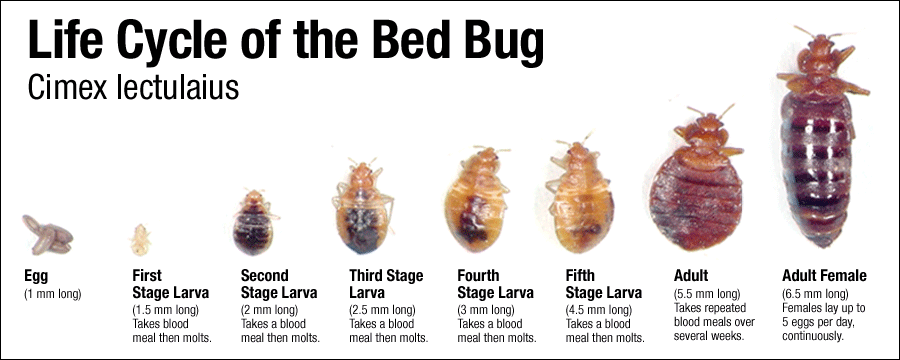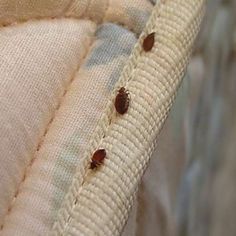Experienced Arlington Exterminator for All Your Pest Problems
Experienced Arlington Exterminator for All Your Pest Problems
Blog Article
Obtain Enlightened About the Types of Pest Control Methods and Their Benefits for Property Owners
Comprehending the various pest control approaches available to homeowners is important for effective pest monitoring. House owners who are knowledgeable can make tactical selections that not only address insect issues however also boost the general quality of their living setting.
Chemical Pest Control Approaches
Chemical insect control approaches are an important component of incorporated insect monitoring techniques for homeowners looking for reliable services to pest problems. These methods include the application of chemical materials developed to remove or prevent insects that intimidate personal effects, health and wellness, and comfort. Typical chemicals made use of include pesticides, rodenticides, fungicides, and herbicides, each tailored to target certain parasites.
The primary advantage of chemical bug control is its fast performance; numerous formulations provide immediate results, reducing pest populaces substantially quickly. Additionally, advances in chemical formulas have brought about products that are a lot more ecologically pleasant and have lower poisoning degrees for non-target microorganisms when applied appropriately.

Biological Bug Control Techniques
All-natural pest control techniques have gotten prestige as property owners look for safer and a lot more lasting options to typical chemical approaches. Biological parasite control techniques use all-natural predators, parasites, or virus to manage insect populaces effectively. This technique is not just eco-friendly yet also lessens the threat of harm to non-target types, including valuable insects and wildlife.
Among one of the most common organic control approaches entails introducing natural predators right into the setting. Ladybugs can be made use of to control aphid populations, while nematodes target soil-dwelling bugs like grubs. In addition, parasitoids-- microorganisms that survive or within a host-- can be used to regulate specific pest species by laying eggs inside them, ultimately resulting in their demise.
One more technique is making use of biopesticides, which are obtained from all-natural products such as germs, minerals, or plants (bed bug exterminator). These products can efficiently target insects while presenting very little danger to family pets and people. Generally, biological pest control techniques offer property owners with an effective means of pest management that lines up with environmental concepts, promoting a much healthier living atmosphere while lowering dependence on synthetic chemicals
Mechanical Insect Control Methods
Mechanical pest control strategies incorporate a range of methods that literally stop or eliminate parasites without the usage of chemicals. These techniques are specifically beneficial for home owners seeking eco-friendly options while making certain the security of their space.
One usual method is the usage of barriers, such as screens, catches, and nets, which prevent bugs from entering homes or details areas. For circumstances, setting up home window screens can effectively keep pests out, while using physical barriers around yards can discourage bigger parasites like deer or bunnies. In addition, mechanical traps developed for rats can record and eliminate these parasites without the need for harmful materials.
An additional effective method entails the use of vacuums and mops to click here for info eliminate insects straight from surface areas. Regular cleaning and upkeep can considerably minimize parasite populaces by removing food sources and hiding areas. Employing devices like ultrasonic insect repellents can discourage different bugs with noise waves that are unpleasant to them however inaudible to humans.
Cultural Pest Control Practices
Cultural pest control practices focus on modifying the environment and management techniques to create conditions that are less conducive to pest problems. These practices are basic in keeping a well balanced ecosystem and reducing the dependence on chemical treatments. By changing agricultural practices, homeowners can effectively deter insects while promoting plant health and wellness.
One typical approach consists of plant turning, which interrupts the life process of bugs by altering the types of plants grown in a specific location (bed bug exterminator). This not just lessens pest populations however likewise boosts dirt health and wellness. In addition, intercropping-- planting varied crops in closeness-- can puzzle pests and lower their capability to locate their favored host plants
Water management is an additional important aspect of social practices. Correct irrigation strategies can avoid standing water, which works as a reproduction ground for mosquitoes and other parasites. Maintaining sanitation in and around the home, such as on a regular basis removing debris and food waste, can significantly minimize parasite tourist attraction.
Including these cultural techniques right into an extensive parasite management approach allows home owners to produce a setting that naturally hinders insects, thereby boosting the performance of various other control techniques while advertising lasting gardening and landscape design.

Integrated Parasite Monitoring Approaches
Integrated Insect Administration (IPM) stands for an all natural strategy that incorporates numerous approaches to efficiently handle insect populations while minimizing environmental influence. This technique incorporates biological, social, you could try here physical, and chemical practices to achieve lasting insect control. By examining pest populations and their natural adversaries, IPM stresses tracking and identifying pests prior to applying control procedures.
One of the core concepts of IPM is making use of thresholds, which develop the level of pest task that requires treatment. This makes sure that treatments are used only when necessary, lowering the dependence on chemical pesticides. Organic control methods, such as presenting natural killers or parasites, job in conjunction with social practices like plant turning and habitat manipulation to interfere with pest life cycles.
Moreover, IPM encourages the usage of least-toxic chemical options when treatment is necessary, prioritizing items that position minimal danger to non-target microorganisms and the atmosphere. For homeowners, embracing IPM comes close to not only boosts the effectiveness of parasite management but likewise advertises a healthier living setting, fostering biodiversity and lowering chemical exposure. Inevitably, IPM equips homeowners to make educated decisions that stabilize pest control with environmental duty.
Conclusion
Finally, understanding the different parasite control methods encourages homeowners to make informed choices regarding pest management. Each technique-- chemical, biological, mechanical, cultural, and integrated parasite monitoring-- uses unique benefits that satisfy various requirements and preferences. By picking proper approaches, home owners can effectively take care of bug populaces while reducing health risks and environmental influences. This educated method contributes to a much healthier living setting, promoting overall health for animals and families alike.
Understanding the different pest control approaches available to home owners is necessary for effective parasite management.Chemical find out parasite control methods are a critical part of integrated bug management methods for homeowners looking for reliable services to pest problems. In general, organic pest control methods provide house owners with a reliable ways of bug management that aligns with environmental concepts, promoting a much healthier living environment while minimizing dependence on synthetic chemicals.
Social pest control methods concentrate on modifying the atmosphere and monitoring strategies to create conditions that are much less helpful to pest infestations.In final thought, recognizing the various parasite control methods equips home owners to make informed decisions relating to pest monitoring.
Report this page